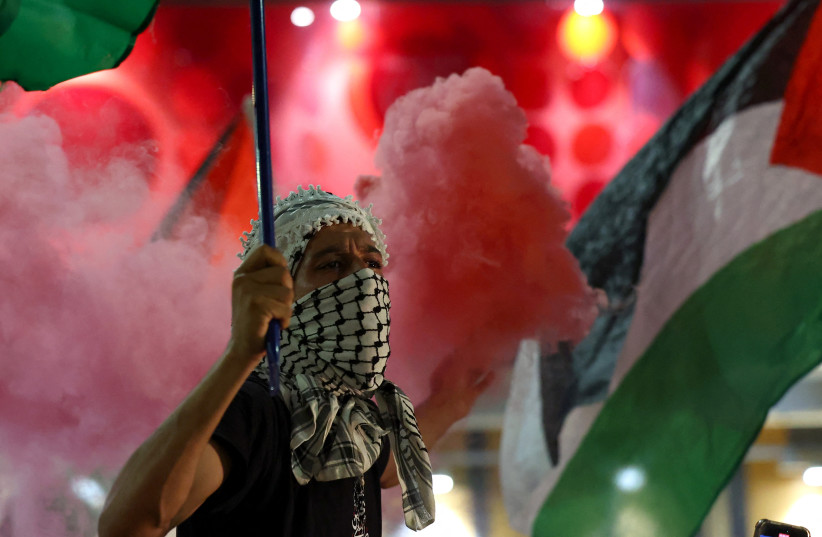Many factors contributed to the success of the savage Hamas assault on October 7.
Underlying the fundamental IDF failure to anticipate and thwart the attack was a deep misunderstanding of the nature and effects of deterrence on complex terrorist organizations. This misunderstanding led to the fatal erroneous assertion that Hamas was deterred; that it was more interested in solidifying its rule in Gaza than in attacking Israel and thus had ceased to constitute an immediate threat.
Ultimately, the belief that deterrence was working, along with a strong desire to maintain the status quo, led to the strategic surprise attack of October 7, echoing the failures of Pearl Harbor, Barbarossa, and the Yom Kippur War.
Deterrence, when combined with other policies, allows for a modus vivendi of considerable longevity between adversaries, providing an attractive and less costly option than preventive war. However, while deterrence may reduce the frequency and/or the intensity of attacks, it is neither an all-encompassing solution nor a war-winning or conflict-resolution strategy; rather, it is a war avoidance strategy. Success in deterrence should not be confused with victory or termination of conflict.
It may be achieved by two methods: punishment, in which punitive threats raise the costs of an action beyond its anticipated benefits; and denial, which denies success to the adversary by physically preventing attainment of its objectives.

Deterrence by punishment is predicated on the premise that something is always valued, and it is that which is valued which must be threatened. However, that which is valued may be intangible, such as a belief system that fuels the conflict – or it may be the conflict itself – and thus difficult, if not impossible, to threaten. Therefore, deterring terrorist organizations through punishment is often more difficult than deterring states, if not impossible.
While a successful denial strategy may reduce short-term terrorist successes, denial alone will not deter in the long run, as terrorist organizations are often innovative when faced with preventive measures such as fences, walls, and barriers. Denial deterrence, a core of Israeli counterterrorism, has proved to be a poor long-term strategy.
Viokent raison d'etre of terror organizations makes deterrence unlikely
EVEN IF punitive threats have some effect, the violent raison d’etre of terrorist organizations makes absolute deterrence success unlikely.
Since, for terrorist organizations violence is a first resort, rather than a last, classical deterrence success measures (prevention of attack by means of threats), may not apply. However, successful threats may move the terrorists along a continuum of deterrent outcomes, making deterrence, while inherently unreliable, effective as a short-term policy.
Still, deterrence must be measured in small doses, and focus on reducing the number of attacks rather than an illusory guarantee of success.
Terrorist organizations such as Hamas, after gaining control of territory and with a consequent increase in their power and resource extraction capabilities, often evolve from purely violent organizations to increasingly complex actors with a domestic political component involved in providing public goods. This evolution has been believed to lead to greater commitment to stability, at the expense of original objectives and ideologies. However, assessing these organizations’ behavior only in relation to their strategic objectives (stated or assumed) ignores the multifaceted aspects of these actors and the critical values in their decision-making.
Thus, when values are in apparent conflict with each other (common enough in day-to-day organizational life, even more so for organizations in violent conflict), the tactical policy choice may be to protect personal or organizational survival and power at the short-term expense of goal achievement. This choice can easily be misinterpreted as moderation or as a shift in overall objectives. However, simply because organizations opt for policies unrelated to their strategic objectives does not necessarily indicate that they have modified or abandoned those objectives.
It has been argued that terrorist organizations that enter the political process are in transition away from violence. For example, that political participation would lead a terrorist organization like Hamas to give up its absolutist goals and accept a compromise with Israel, at least de facto. This view, as regards Hamas, was clearly optimistic. Political participation may not be an alternative to violent activity but more likely an adjunct – with the terrorist organization being susceptible to coercion without moderating its strategic and ideological goals.
Political involvement is an effective means of maintaining and increasing the practical support of a terrorist organization’s constituencies and facilitating compliance to directives – particularly concerning resource extraction – while the organization proceeds with its violent campaigns against the adversary.
In effect, these organizations have reversed Clausewitz’s dictum that “war is not a mere act of policy but also a real political instrument, a continuation of political commerce, a carrying out of the same by other means” to “political activity is a continuation of war by other means.”
Prudence should not be confused with moderation: The objective of an organization’s political behavior may be enhancement of its war-making capabilities and position without compromising ideology or goals in any way.
Mistaking Hamas’s pause in violence (to build up strength and prepare its attack on Israel) for a moderation in ideology and goals and a refocus on domestic needs in Gaza contributed greatly to the misconception that the terrorist organization was deterred – and no longer presented a threat.
The horrific price for that error is still being paid.
The writer is a political and military strategic analyst. He is a major in the IDF reserves.
